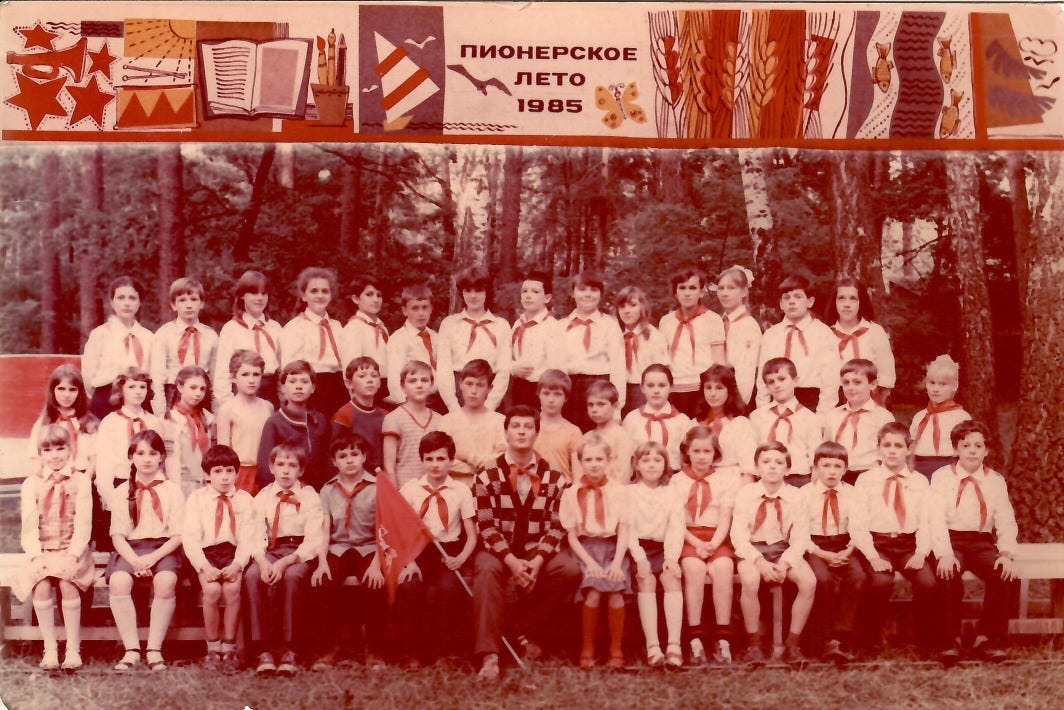From Soviet Surveillance to Canadian Compliance: Is Canada Recreating the Soviet "First Department"?
Thoughts from personal experience living in the USSR: What parallels exist between Soviet-era academic monitoring and modern Canadian public service enforcement?
In the Soviet Union, every major institution—universities, factories, research centers—had what was widely known as the First Department (первый отдел). These departments, overseen by the KGB, were responsible for maintaining ideological conformity and ensuring loyalty to the Communist Party.
I studied at the Moscow Institute of Physics and Technology (MFTI) from 1988 to 1993 and remember the ever-present sense of being watched. The First Department office had no sign, only a padded leather door. We rarely saw who worked inside, but everyone knew: they had access to every file, every whisper, every potential deviation from Party loyalty.
The department:
Reviewed academic publications for ideological purity
Approved (or blocked) foreign travel
Controlled access to classified work
Monitored students and professors for political reliability
These were not theoretical powers—they affected real lives, real careers, and often led to exile or professional oblivion.
Today in Canada, are we seeing something similar?
A Modern Echo: Labor Relations in Canadian Institutions
Labor Relations Offices in Canada—especially within federal institutions—are officially tasked with addressing workplace conduct and facilitating collective agreements. But is that all they do?
Some employees report being disciplined for expressing views that diverge from official government messaging. Others face investigations for social media posts or private conversations deemed "problematic."
Could it be that Labor Relations departments now play a role similar to the First Department—monitoring political alignment and punishing nonconformity?
Questions We Must Ask
Who oversees these offices? In the USSR, the First Department was part of the KGB. In Canada, Labor Relations is managed through the Treasury Board and internal HR divisions. But are the parallels deeper than organizational structure?
What was the stated purpose of the First Department? To protect ideological purity and state secrecy. And in Canada? Officially, it’s to uphold respectful workplace conduct. But is this being interpreted—or misused—as a tool to enforce political alignment?
In the Soviet Union, the First Department targeted dissent, non-conformist thought, and foreign contact. Are Canadian employees being similarly monitored for non-mainstream opinions or criticism of policy?
The Soviet apparatus used files, informants, and restrictions to suppress deviation. Today in Canada, we hear of disciplinary letters, internal investigations, and suspensions. Are these enforcement mechanisms, even if softer, being deployed in ways that mirror past authoritarian tendencies?
These are not accusations. They are questions—urgent, uncomfortable, and necessary.
Why This Matters
History shows us that systems of ideological enforcement don’t always start with jackboots and barbed wire. Often, they begin with a well-intentioned commitment to "unity" or "safety." But once dissent becomes punishable, freedom begins to erode.
Are we seeing the early warning signs?
Are we repeating a mistake that Eastern Europe paid dearly for?
Sources for Historical Context
KGB Lexicon: The Soviet Intelligence Officer’s Handbook (Routledge, 1993)
Mitrokhin Archive, Cambridge University — documentation of Soviet surveillance structures
Memoirs of Soviet scientists who describe firsthand the influence of the First Department in universities and labs (e.g., Zhores Medvedev, Ten Years After, 1973)
Article on First Department in Soviet Institutions (Russia Beyond)
Contemporary Canadian References
Federal court rulings on dismissal due to political expression (e.g., 2021 FC 1165)
Whistleblower protection reports from the Senate and PIPSC (2022–2024)
For Further Viewing and Context
Short videos for quick insight:
What is the KGB and Why is it so Feared? (Simple History) – 7-minute overview of KGB power and influence.
Rare Footage of KGB Training (ITN Archive) – Archival glimpse into the indoctrination of KGB officers.
The Man Who Killed Millions Trying to Grow Food (Vsauce2) – How ideological conformity in Soviet science had deadly consequences.
Long-form videos for deeper understanding:
The KGB and Western Plots Against the Soviet Union (Hoover Institution) – 40-minute expert discussion on KGB’s psychological control.
Sword & Shield: History of the KGB (Free Documentary) – A full history of KGB operations, including domestic ideological control.
The KGB Connections (1982) – Cold War documentary highlighting internal and international KGB tactics.
We should not dismiss these similarities too quickly. Even democratic systems can drift. The key is vigilance, transparency, and the courage to ask difficult questions—before silent enforcement becomes systemic censorship.
Disclaimer
This article's opinions are that of the author, not of any institution. It is not for legal or medical advice.
Acknowledgment
This article is written based on my personal experience living in the USSR, with assistance from ChatGPT for editing: “Write a Substack article comparing the Soviet 'First Department' with the role of modern Canadian labor relations offices, reframed in the form of open inquiry and historical caution, and include related video references.

UPDATED: The following follow-up article was written to further examine the lessons from Soviet history to Canadian presence:
Support This Work Across All Channels
If you believe in open dialogue, informed choice, and exploring underreported perspectives, help keep the conversation going—like and share this article on your preferred platform.
I write these articles on my own time as a contribution to my community—especially for those seeking truth and guidance in these increasingly censored times. Your support—through follows, likes, and shares—makes a real difference.
You can follow me here:
🔹 LinkedIn
🔹 Facebook
🔹 Twitter/X
🔹 YouTube (@Dr.Dmitry.Gorodnichy), YouTube (@IVIM)
My articles are, and will always remain, free to read.







I can’t wait to retire from federal public service. It’s not the same place I started 2 decades ago. They put me through the grinder with jabs that I barely escaped with Gods favour. It left me angry and extremely untrusting. I pray for a daily miracle to be able to leave sooner but I’m so close to that stupid pension. 😮💨
Wow - thank you for sharing this very valuable information - the personal links are SO important. All the best to you.